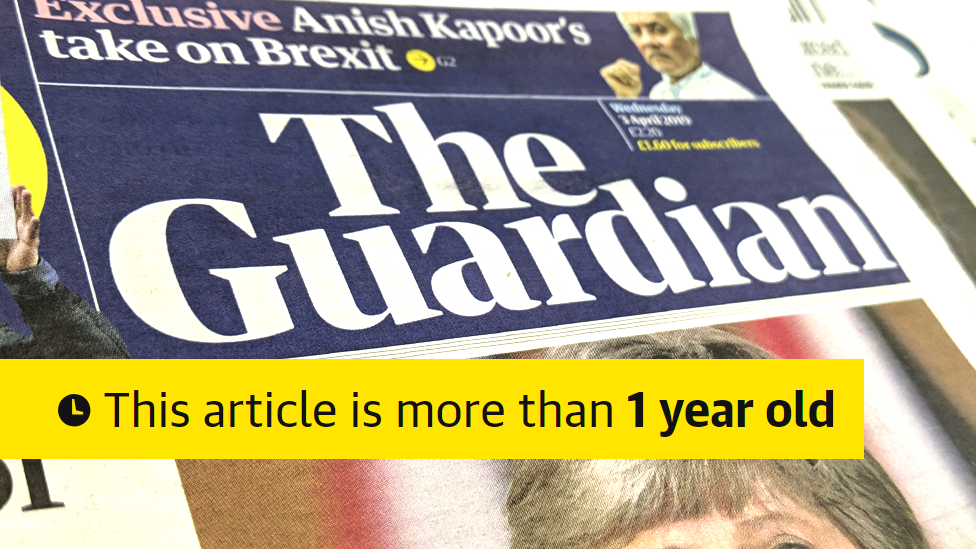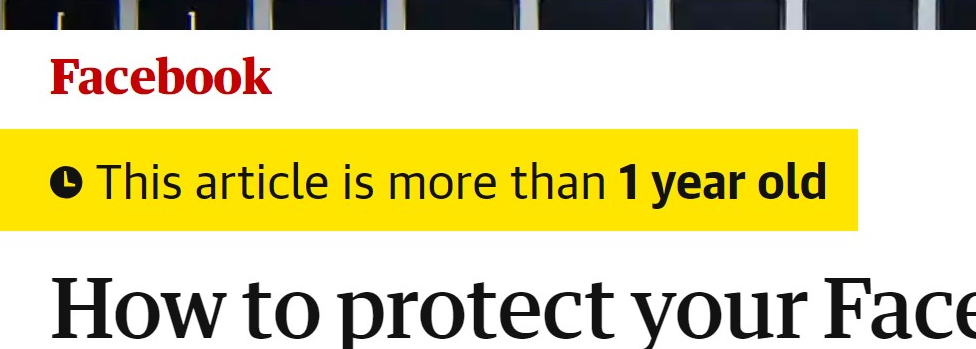Guardian to flag old news on social media
- Published

Old news stories from the UK's Guardian newspaper will be marked with their year of publication when shared on social media, to limit misinformation.
It said partisan groups had been sharing old news stories as though they had been recently published in order to push an agenda.
Apps such as Facebook, Twitter and WhatsApp do not show the publication date of news stories that are shared.
The Guardian will mark the date on the image of old stories.
As an example, the newspaper referred to a six-year-old story about horse meat in supermarket products that appeared to go viral on Facebook every February.

Old news stories will be marked on social media
Most of the popular social networks and search engines display an information "card" when a news story is shared on their platform.
These cards pull in the headline, photo and a short summary of the story from the original news website.
But they do not display the date that the story was written, so old articles often go viral years after their original publication.
"It's often the case that Facebook users are seeing only the post rather than the article itself," said the Guardian's Chris Moran, external.
"So now, along with adding our logo to trail pictures used by social and search platforms, we are also clearly featuring the year of publication on any article more than 12 months old."
The change may take some time to appear because social networks store copies of the summaries they retrieve from news websites.
"We believe these steps will make it increasingly difficult for bad actors to use our journalism to the wrong ends," said Mr Moran.

The Guardian will also identify old stories more prominently on its website
BBC News contacted Facebook and Twitter to ask why the original publication date was not displayed on all news story summaries by default.
Facebook declined to comment on the Guardian's initiative but said it had independent fact-checking partners looking at articles, photos and videos in 24 languages.
Twitter declined to comment.
BBC News said it currently had no plan to implement a similar system.
- Published2 April 2019